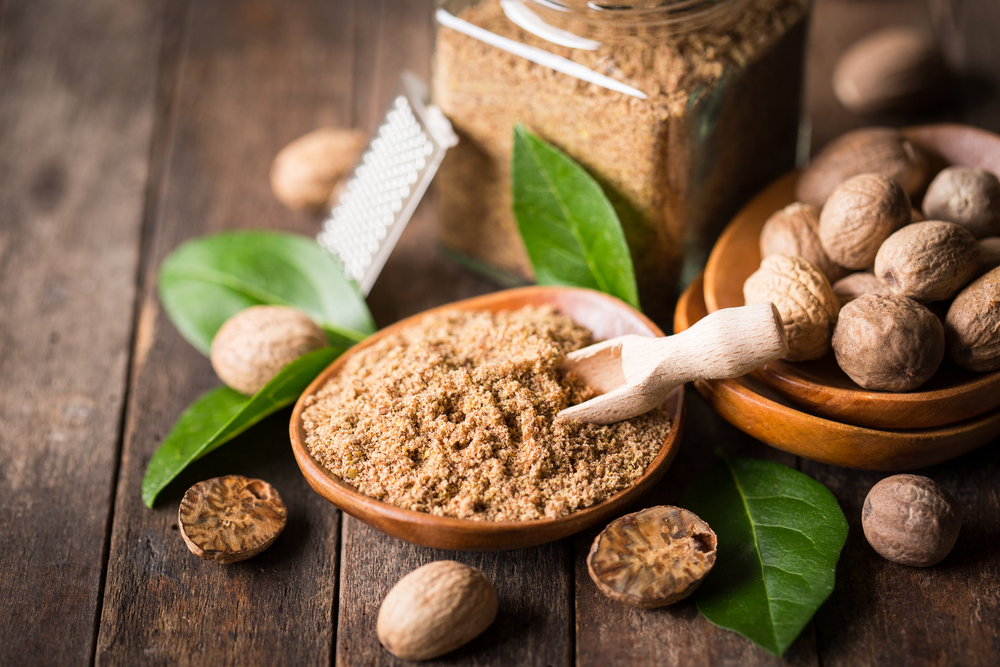Nutmeg’s Flavor Profile: Understanding Its Warmth and Depth
Nutmeg, a spice cherished for its warmth and depth, plays a subtle yet pivotal role in African cuisine. With its complex flavor profile that includes hints of sweetness, spiciness, and a distinct muskiness, nutmeg is used sparingly to elevate the taste of various dishes. This versatile spice is especially valued in North African cooking, where it’s often paired with other spices like cinnamon and cloves to create rich and aromatic blends. Whether grated fresh or used as a ground powder, nutmeg’s unique taste adds an unmatched warmth to both sweet and savory African recipes.
The Historical Journey of Nutmeg to African Shores
The journey of nutmeg to Africa is a story of spice trade and cultural exchange. Originally from the Spice Islands in Indonesia, nutmeg found its way to Africa through ancient trade routes. It was embraced by African cooks for its ability to enhance the flavors of local ingredients and dishes. Over time, nutmeg became a staple in various regional cuisines, especially in North Africa, where it’s used in an array of traditional dishes. The spice’s enduring popularity in African cooking is a testament to its versatility and the rich culinary heritage of the continent.

Nutmeg’s Role in North African Culinary Traditions
The Subtle Art of Using Nutmeg in North African Dishes
In North African cuisine, nutmeg is used with a masterful subtlety, often in combination with other spices, to add warmth and complexity to dishes. It’s a common ingredient in spice mixes such as Ras el Hanout, used in Moroccan tagines and couscous. Nutmeg’s distinctive flavor enhances a variety of savory dishes, including stews, soups, and meat preparations, lending a subtle yet unmistakable warmth. Its addition is particularly favored in recipes featuring lamb and poultry, where it complements the rich flavors of the meat. The spice’s versatility also extends to North African sweets and desserts, where it’s used to balance the sweetness and add a layer of complexity.
Celebrated North African Recipes with a Hint of Nutmeg
Iconic North African recipes often feature nutmeg to achieve their characteristic warm and inviting flavors. Dishes like Egyptian Bechamel Pasta, Moroccan Kefta, and Tunisian Brik are all enhanced with a touch of nutmeg, harmonizing the spices and elevating the overall taste profile. In sweet dishes, such as Algerian Baklawa and Moroccan Seffa, nutmeg adds a subtle aromatic quality that distinguishes these desserts. The judicious use of nutmeg in these recipes showcases its integral role in the rich tapestry of North African cuisine.
Mastering the Use of Nutmeg: Tips and Techniques
Selecting and Storing Nutmeg for Optimal Freshness
When selecting nutmeg, consider opting for whole nutmeg seeds, which have a longer shelf life and retain their flavor better than pre-ground nutmeg. Whole nutmeg can be freshly grated as needed, ensuring maximum freshness and aroma. Store whole nutmeg in a cool, dry place, away from direct sunlight. Properly stored, it can retain its potency for up to a year, making it a practical and flavorful addition to any spice collection. Remember, a little goes a long way with nutmeg, so it’s best used sparingly to avoid overpowering dishes.
Best Practices for Incorporating Nutmeg in Cooking
When cooking with nutmeg, it’s important to balance its strong flavor judiciously. It pairs well with ingredients like cheese, spinach, and potatoes in savory dishes, adding a warm, aromatic depth. For sweet recipes, nutmeg complements flavors like chocolate, cinnamon, and vanilla, enhancing desserts and baked goods. Grating nutmeg fresh, right before use, can significantly elevate the taste of your dish. Nutmeg is particularly effective when combined with other spices, creating a harmonious blend that enhances the overall flavor profile of the meal.

Nutmeg Across the African Continent: Regional Insights
Nutmeg in East and West African Cuisines
In East and West African cuisines, nutmeg is used to add warmth and complexity to a variety of dishes. In East Africa, nutmeg is often found in spice blends used for meat dishes and curries, lending a subtle yet distinctive flavor. West African cuisine utilizes nutmeg in an array of traditional dishes, such as stews and soups, where it complements the hearty flavors of the region. Nutmeg’s sweet and slightly spicy taste also makes it a popular ingredient in many sweet treats and desserts throughout these regions, demonstrating its adaptability to different culinary styles and preferences.
Exploring Lesser-Known Uses of Nutmeg in African Cooking
Beyond its common uses, nutmeg also plays a role in lesser-known African dishes, where it adds a unique twist. In some regional specialties, nutmeg is used in savory pastries, rice dishes, and even in certain types of bread. It’s also a key ingredient in various traditional drinks and beverages, offering a warm and comforting flavor. These lesser-known uses of nutmeg highlight the spice’s versatility and its ability to enhance a wide range of culinary creations across the African continent.
Innovative Recipes: Nutmeg’s Modern Culinary Applications
Traditional African Dishes Reimagined with Nutmeg
Rediscover traditional African dishes with the addition of nutmeg. A Nutmeg-Infused Moroccan Lamb Tagine, where nutmeg complements the rich flavors of the meat, offers a delightful new take on a classic. For a vegetarian option, consider a Nutmeg-Spiced Ethiopian Lentil Stew, enhancing the dish’s earthy flavors with the warmth of nutmeg. In desserts, a Nutmeg and Banana Fritter, inspired by West African cuisine, showcases the spice’s ability to add a new dimension to sweet flavors.
Modern African Fusion Recipes Featuring Nutmeg
Explore the fusion of traditional and contemporary flavors with nutmeg. A dish like Nutmeg-Seasoned Chicken Yassa combines classic elements with modern techniques. In the realm of sweets, a Nutmeg-Flavored Malva Pudding brings a unique twist to this South African favorite. For a refreshing drink, try a Nutmeg-Infused Hibiscus Tea, merging traditional African ingredients with a global palate.
Nutmeg in African Cuisine: FAQs
1. How Much Nutmeg Should Be Used in Cooking?
Due to its strong flavor, nutmeg should be used sparingly. A small pinch or a light grating is often enough to impart its warm and aromatic flavor to dishes.
2. Can Nutmeg Be Used in Both Sweet and Savory Dishes?
Absolutely. Nutmeg’s versatile flavor profile makes it suitable for a wide range of dishes, from savory stews and soups to sweet desserts and baked goods.
3. What Are the Health Benefits of Nutmeg?
Nutmeg is known for its potential health benefits, including digestive aid, anti-inflammatory properties, and its ability to help improve sleep quality and reduce stress when used in moderation.
4. Can Nutmeg Be Toxic?
While nutmeg is safe in culinary doses, consuming it in very large quantities can lead to toxicity, causing symptoms like nausea, dizziness, and irregular heartbeat. It’s important to use it sparingly and responsibly in cooking.
5. How Does Nutmeg Complement Other Spices?
Nutmeg pairs well with a variety of spices, including cinnamon, cloves, and allspice, enhancing and balancing their flavors in both sweet and savory dishes.
6. Is Freshly Grated Nutmeg More Flavorful?
Yes, freshly grated nutmeg is often more flavorful than pre-ground nutmeg. Grating it fresh ensures a more potent and aromatic flavor, enhancing your dishes.
7. How Can I Incorporate Nutmeg into My Diet?
Include nutmeg in your diet by adding it to soups, stews, sauces, baked goods, and even beverages like coffee or tea for a warm, spicy flavor.
